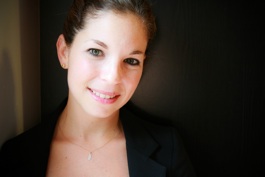Instructional Coach Interview
Interview with Marisa Kaplan, Former Instructional Coach in New York
We interviewed Marisa Kaplan, who at the time of this interview was an Instructional Coach in New York City with many years of teaching experience in public, private and charter schools. She now works as Editorial Director for EdSurge. As a teacher, she worked in early childhood classrooms as well as grades one, two and six. Marisa attended New York University and earned a BA from the Gallatin Program of Individualized Study that focused on creative writing and music composition. She later earned an MS in Learning Disabilities from Hunter College, with dual certifications in special education (grades 1-6 and grades 5-9) and general education (grades 1-6 and grades 5-9). Marisa was an NYC Teaching Fellow at Hunter. As an Instructional Coach, she coached literacy teachers in first through eighth-grade classrooms.
 You describe yourself as a “teacher, learner, writer, consultant and educational architect paving the way for the teacher-freelancer.” Can you please elaborate upon this idea of a teacher-freelancer? How do you aim to broaden educators’ experiences beyond the classroom?
You describe yourself as a “teacher, learner, writer, consultant and educational architect paving the way for the teacher-freelancer.” Can you please elaborate upon this idea of a teacher-freelancer? How do you aim to broaden educators’ experiences beyond the classroom?
When I was a classroom teacher, I often felt restricted by the four walls of my classroom, like I didn’t have time to search beyond those walls. Now I spend my days working in a mix of education-related positions and I love it. I spend two to three days a week in the classroom as a coach. I am working on some great edtech projects. I write about education and attend educational conferences and meetups regularly. Essentially I am a freelance teacher. I want to use my experience in the classroom to impact and perhaps support other teachers, administrators, and educational entrepreneurs making tools for the classroom. So many career paths are flexible and allow for mobility so that you can grow within your industry. I believe that teaching should be like that too! I enjoy my time in the classroom with teachers, but I also love participating in ‘thinktanks’ and discussing how to make changes in our educational system.
What aspects of your job are the most challenging and how do you overcome them?
As a special education classroom teacher, I always wished there was less paperwork. The daily grind was filled with filing paperwork to ensure that my students were making adequate progress, meeting their goals, etc. While important, it seemed to take time away from planning, instruction, and feedback on student work. I also found that as a special education teacher, administration never seemed to want to keep me in one place. I became the ‘filler’ for what needed to be taken care of. Teaching one grade for multiple years seemed like a farfetched luxury to me.
As an instructional coach I face different challenges. I need to mold myself to mesh well with all types of teaching personalities. It is also challenging to zoom my focus to one or two specific goals when coaching teachers, rather than working on everything at once!
What do you most enjoy about being an educator?
I enjoy the energy that young people have and I hope to keep it forever! Whether working with preschoolers who find everything new and interesting, or with eighth graders on the verge of making major life decisions, there is always an energy in the classroom that doesn’t exist in other places. I also really love helping those students who struggle to find what makes them shine. I believe that giving confidence is one of a teacher’s most important responsibilities.
Please describe what a typical workday is like for you.
I operate on an A-B-C schedule. My ‘A’ days are spent in the classroom. On a typical coaching day, I co-teach and/or model with four to five teachers in their respective classrooms and then debrief our lessons.
My ‘B’ days are spent either at home or in an office consulting with the staff on the edtech projects I am currently working on.
My ‘C’ days are research and writing days. I do that from home because it takes a ton of focus for me.
What advice can you give to recent graduates who are preparing to start a teaching career?
I would advise them to try their best to teach in one grade level for at least two to three years before making a change. It’s the best way to focus on your teaching practice. I would urge them to reflect daily because no matter how great a lesson goes, it can always be re-structured or modified in some way. There will most likely be a student who tests you, or presses your buttons. While it can be your greatest challenge, try to connect with that student. This is crucial because if you can find a way to make that student shine, then you are doing your job well. Finally, I would say that flexibility has been key in my teaching – with students, colleagues and families.
We thank Marisa for sharing her experience as both a traditional classroom teacher and a freelancer educator. Visit her LinkedIn or connect with her Twitter @edgeeks for more insight into the field of education.
Read about how to become a teacher in New York.
